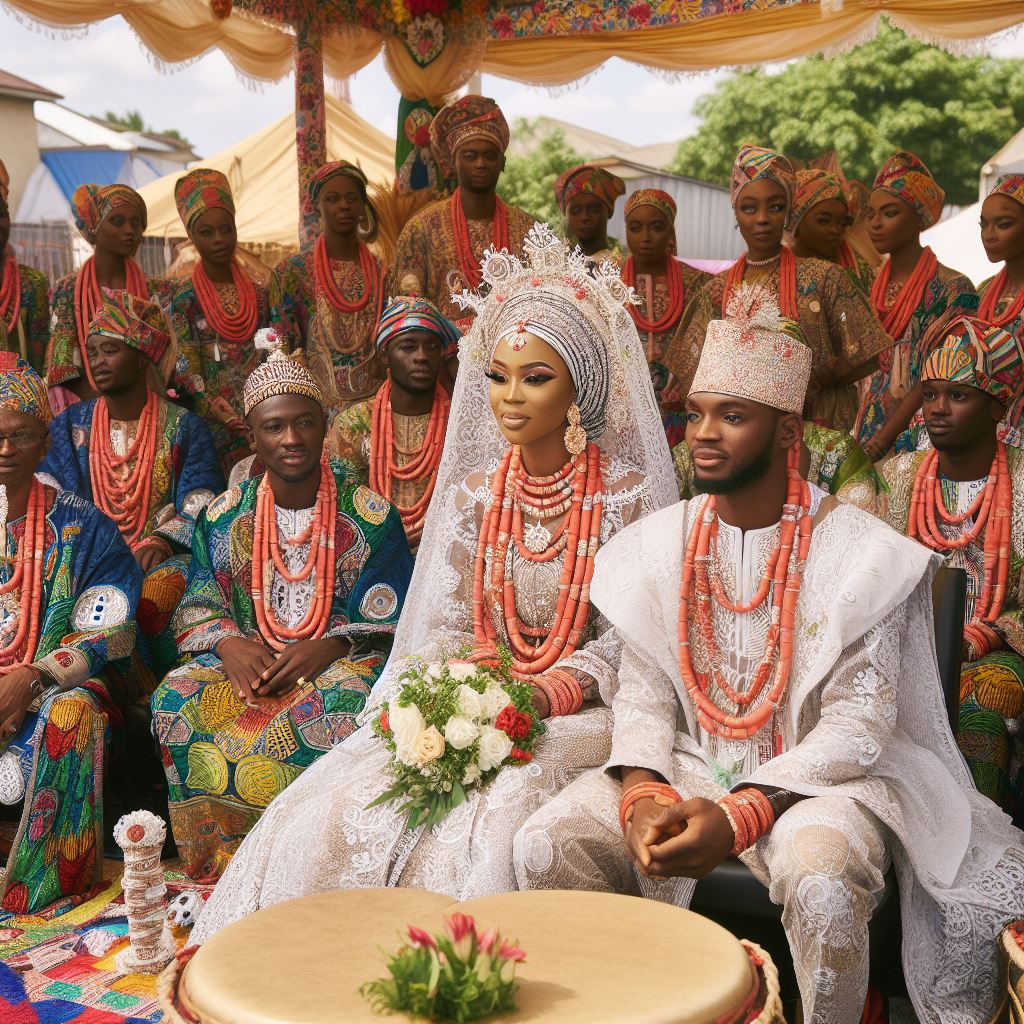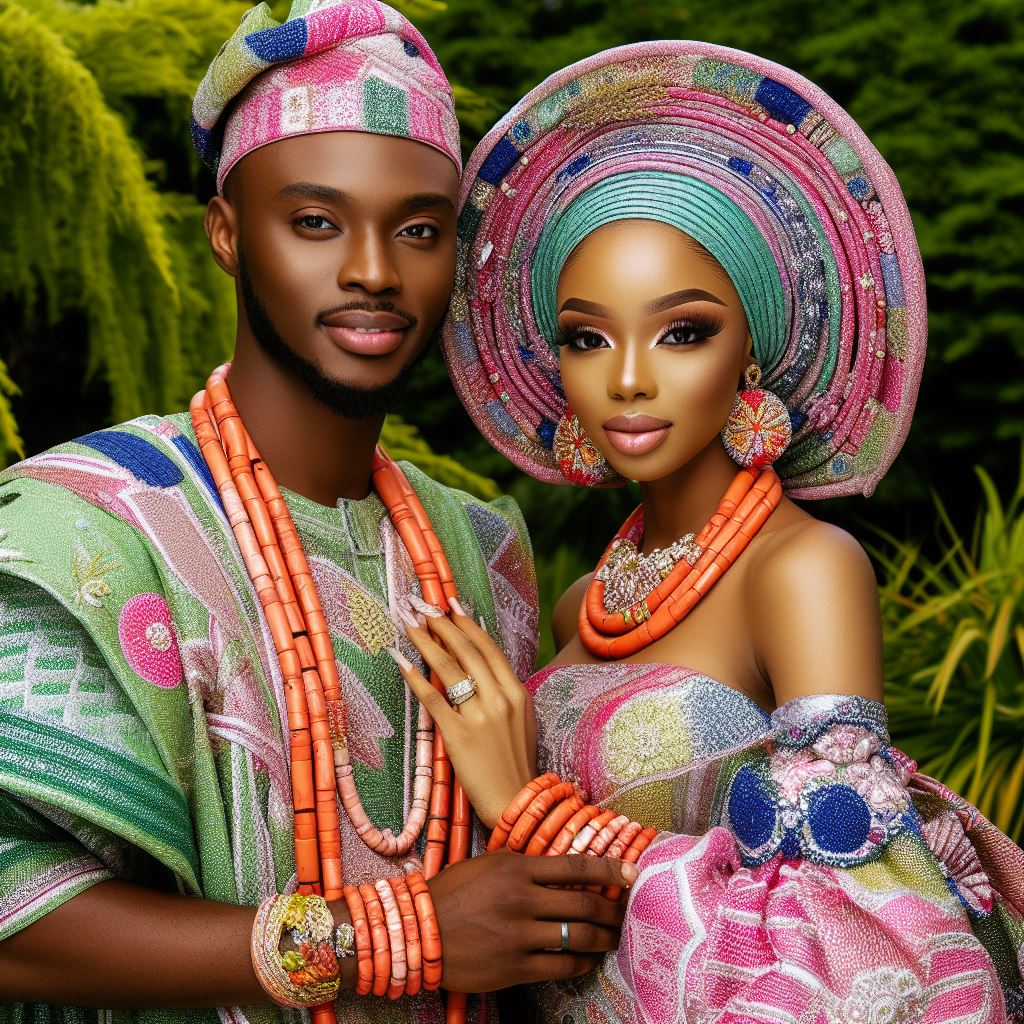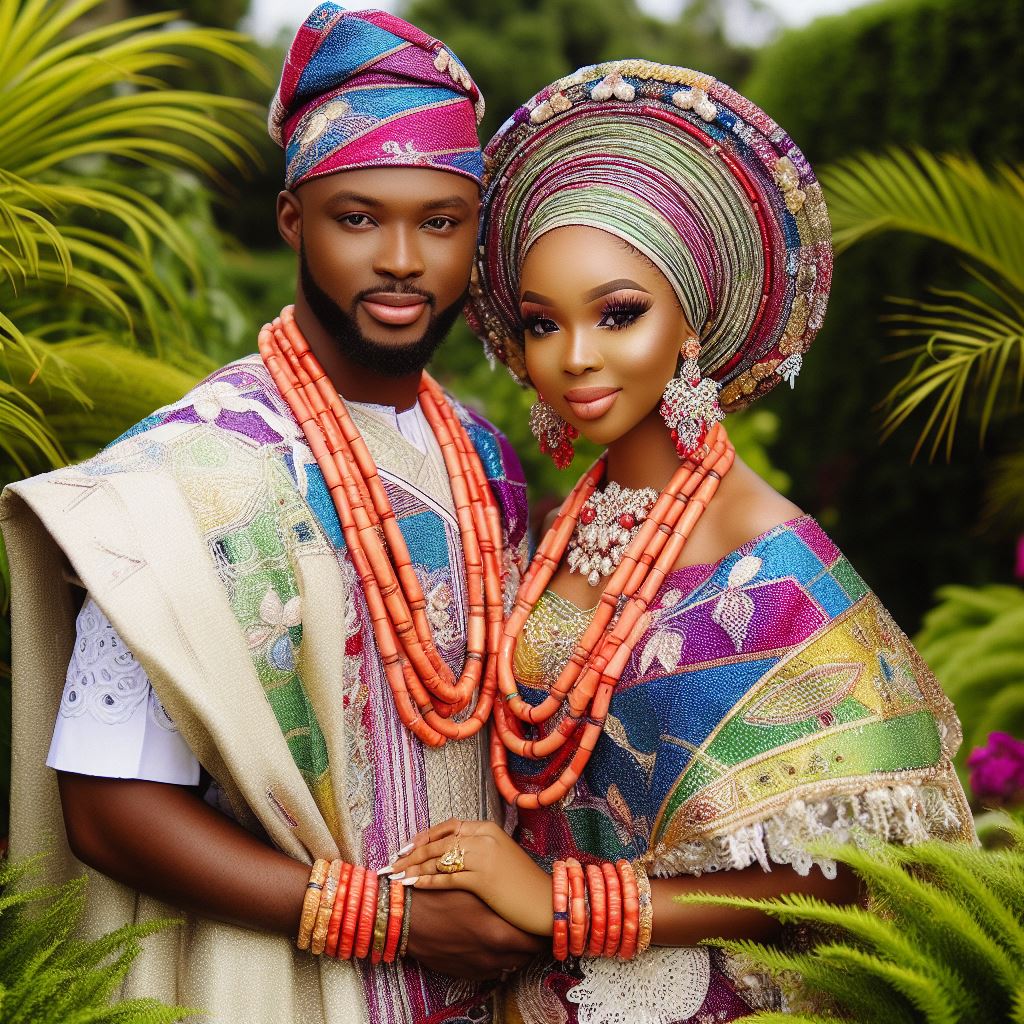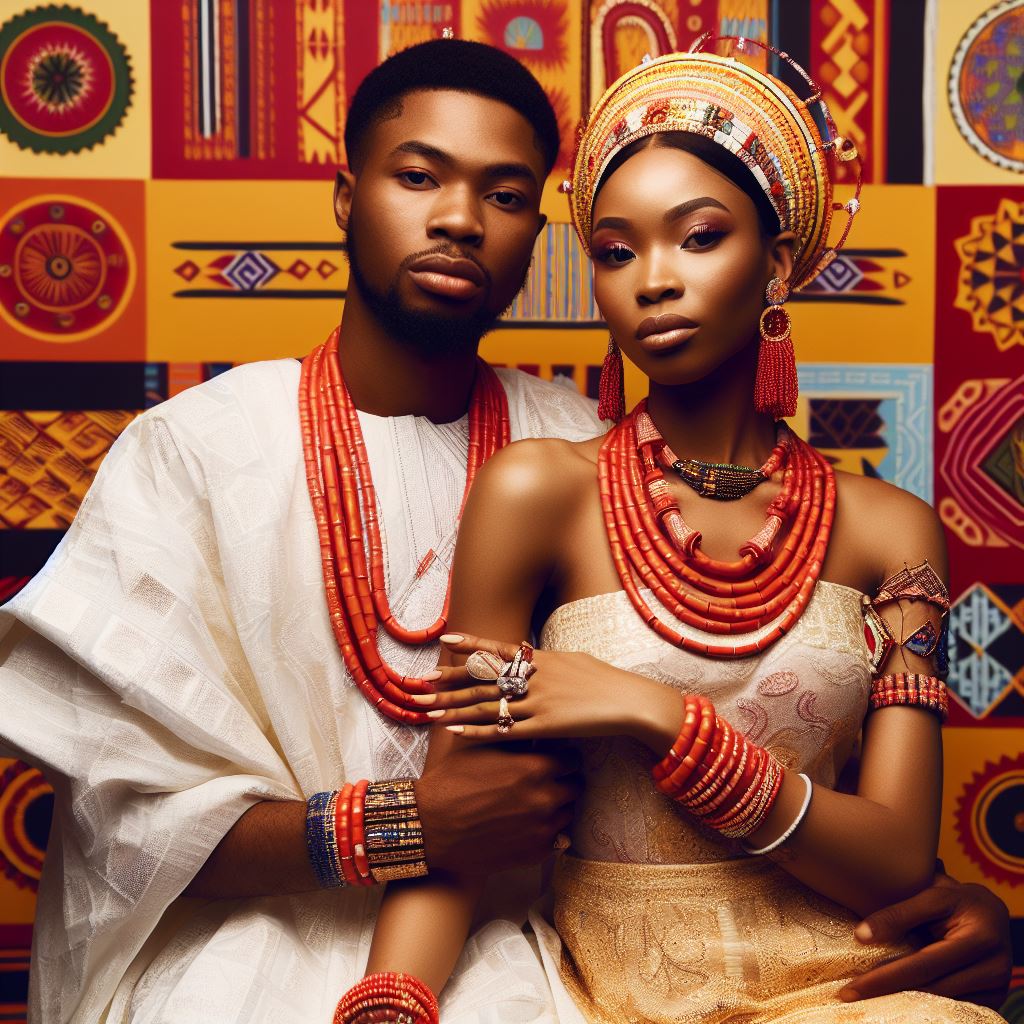Introduction
Definition of marriage form in Nigeria
In Nigeria, the marriage form refers to the legal document that validates a marriage.
Importance of understanding the laws and requirements surrounding the marriage form
It is important to understand the laws and requirements surrounding this form to ensure a valid and legally recognized union.
In Nigeria, the “Marriage Form” is a crucial document that signifies the legal union between two individuals.
To ensure a seamless marriage process, it’s vital to comprehend the laws and requirements governing this form.
- Legal Document: The marriage form is a legally binding document that solidifies the union between two consenting adults.
- Types of Marriages: Nigeria recognizes various forms of marriage, including Customary, Islamic, and Statutory marriages, each with specific requirements.
- Consent: Both parties must provide free and informed consent to enter into the marriage. Consent is a fundamental requirement.
- Age: The minimum legal age for marriage in Nigeria is 18 years. Understanding this is crucial for avoiding underage marriages.
- Parental Consent: In cases where the parties are below the age of 21, parental consent is necessary.
- Witnesses: Two witnesses are required to sign the marriage form, attesting to the legitimacy of the union.
- Registration: Proper registration of the marriage form with the appropriate authorities is mandatory to make it legally valid.
- Customary Marriage: Customary marriages require adherence to traditional customs and may involve additional requirements.
- Islamic Marriage: Islamic marriages should follow Sharia law and require the presence of an Islamic cleric.
- Statutory Marriage: For statutory marriages, a marriage registry is essential, and the marriage form must be obtained there.
Understanding these laws and requirements surrounding the marriage form in Nigeria is essential for a smooth, legally recognized union.
Failure to comply with these guidelines can result in legal complications and invalidate the marriage. Therefore, it is crucial to seek legal advice and guidance to ensure a successful and legally binding marriage.
Types of Marriage in Nigeria
In Nigeria, there are three main types of marriages: customary marriage, Islamic marriage, and statutory marriage.
1. Customary marriage
- Customary marriage is the most common form of marriage in Nigeria, especially among indigenous ethnic groups.
- Customary law recognizes this marriage type, which follows traditional cultural practices.
- It involves the exchange of dowry, negotiations between families, and traditional ceremonies.
2. Islamic marriage
- Nikah, an Islamic marriage, aligns with Islamic teachings and gains recognition under Muslim personal law.
- It requires the consent of both the bride and groom and the presence of witnesses.
- Islamic marriage ceremonies may include the recitation of Quranic verses, wedding vows, and the signing of a marriage contract (Nikahnama).
3. Statutory marriage
- Statutory marriage, often referred to as the “white wedding,” is conducted under the Marriage Act of Nigeria.
- It is a formal and legally recognized marriage ceremony that must be conducted by a licensed marriage registrar.
- In this type of marriage, couples must meet certain requirements, such as obtaining a marriage license, providing birth certificates, and giving notice of intention to marry.
Each type of marriage in Nigeria has its own legal requirements and implications. Here are a few important points to note:
Customary marriages
- Customary marriages must comply with the customs and traditions of the respective ethnic groups.
- It is advisable to register the marriage with the Customary Court to ensure legal recognition and protect the rights of both parties.
Islamic marriages
- Islamic marriages must adhere to the principles and guidelines of the Sharia law.
- They are recognized as valid legal marriages, but it is recommended to obtain a marriage certificate from a recognized Islamic authority or the Marriage Registry for official documentation.
Statutory marriages
- Statutory marriages require couples to fulfill certain conditions, including age and capacity to consent to marriage, absence of any previous marriage, and the presence of two witnesses.
- It provides the spouses with legal recognition, rights, and responsibilities, and allows for the registration of the marriage with the Marriage Registry.
It is important to note that regardless of the type of marriage, polygamy is allowed under customary and Islamic laws in Nigeria, but it is not permitted in statutory marriages.
Generally, Nigeria recognizes three main types of marriage: customary, Islamic, and statutory.
Each type has its own specific requirements and legal implications, and it is important for couples to understand and comply with the relevant laws and regulations.
By doing so, they can ensure that their marriage is legally recognized, protected, and provides them with the rights and responsibilities they deserve.
Read: From Courtship to Marriage: Tales from Port Harcourt
Laws and Requirements for Customary Marriage
In Nigeria, customary marriage is a traditional form of union that is recognized by the legal system. Here are the key laws and requirements for a customary marriage:
Traditional Requirements
- Couples must adhere to specific cultural practices and traditions when getting married.
- The marriage ceremony should take place according to the customs and rituals of the community.
- These traditional requirements vary across Nigeria’s diverse ethnic groups.
Consent of Parents or Guardians
- Before the marriage can take place, the consent of the parents or guardians is generally required.
- The consent ensures that both families are aware of and support the union.
- This is especially important in maintaining harmony and strengthening family ties.
Payment of Bride Price
- The groom is expected to pay a bride price to the bride’s family as a symbolic gesture.
- The bride price can vary depending on the cultural norms and the families involved.
- It serves as a token of appreciation and a sign of the groom’s ability to take care of the bride.
Registration Processes
- Even though customary marriages are recognized, couples are encouraged to officially register their union.
- The marriage can be registered at the Local Government Registry.
- The registration process involves providing relevant documents and paying the required fees.
- Registration ensures that the marriage is legally recognized and provides legal protection to both parties.
It is important to note that different states in Nigeria may have specific laws and requirements for customary marriages. Therefore, couples should consult the applicable laws and regulations in their respective states.
Couples ensure legal recognition and protection of their customary marriage by adhering to these laws and requirements
It is crucial to respect and uphold cultural traditions while also complying with legal obligations.
Customary marriages hold great significance in Nigerian society, as they are deeply rooted in rich cultural heritage. These unions not only bring individuals together but also strengthen family and community bonds.
Ultimately, the laws and requirements surrounding customary marriage in Nigeria aim to safeguard the rights and interests of both parties involved while preserving the cultural fabric of the nation.
Read: Behind the Veil: Untold Stories of Nigerian Brides
Laws and Requirements for Islamic Marriage
- Islamic traditions and rituals play a significant role in the process of Islamic marriage in Nigeria.
- Islamic religious leaders hold the responsibility of officiating the marriage ceremony and guiding the couple.
- Consent from the guardians of both the bride and groom is a crucial requirement for an Islamic marriage.
- The registration process for an Islamic marriage involves submitting necessary documents to the appropriate Islamic authority.
Islamic marriage laws in Nigeria, governed by cultural and religious traditions, hold significant cultural and religious value
This section will explore various aspects of Islamic marriage in Nigeria, including the role of Islamic religious leaders, the importance of consent from guardians, and the registration processes involved.
Islamic traditions and rituals
- Islamic marriages in Nigeria are conducted following specific traditions and rituals.
- These traditions vary depending on the Islamic sect, but they generally involve recitation of prayers, making vows, exchanging rings, and signing a marriage contract.
- These rituals hold great significance as they symbolize the couple’s commitment to each other and the community.
Role of Islamic religious leaders
- Islamic religious leaders play a vital role in Islamic marriage ceremonies.
- They officiate the marriage and ensure correct performance of the rituals
- They also provide religious guidance to the couple, advising them on the responsibilities and obligations that come with marriage.
- The presence of Islamic religious leaders adds legitimacy to the marriage, as they are highly respected in the community.
Consent of guardians
- In Islamic marriage, the consent of the guardians of both the bride and groom is crucial.
- The guardians, usually the parents or close relatives, act as protectors of the couple’s interests and welfare. Their consent signifies their approval and support for the marriage.
- An Islamic marriage may not be valid or recognized without guardian consent
Registration processes
- Registering with the relevant Islamic authority is necessary for legal recognition of an Islamic marriage in Nigeria.
- The registration process involves submitting certain documents, such as the marriage contract, proof of identity, and payment of fees.
- Official state recognition through registration secures legal protection and rights for the married couple
Islamic marriage in Nigeria, governed by laws, prioritizes Islamic traditions, rituals, guardian consent, and registration processes.
These elements ensure the legitimacy and recognition of the marriage within both the Islamic community and the legal system.
Understanding and adhering to these laws and requirements is essential for couples who wish to have an Islamic marriage in Nigeria.
Read: Yoruba-Inspired Marriage Congratulations Messages
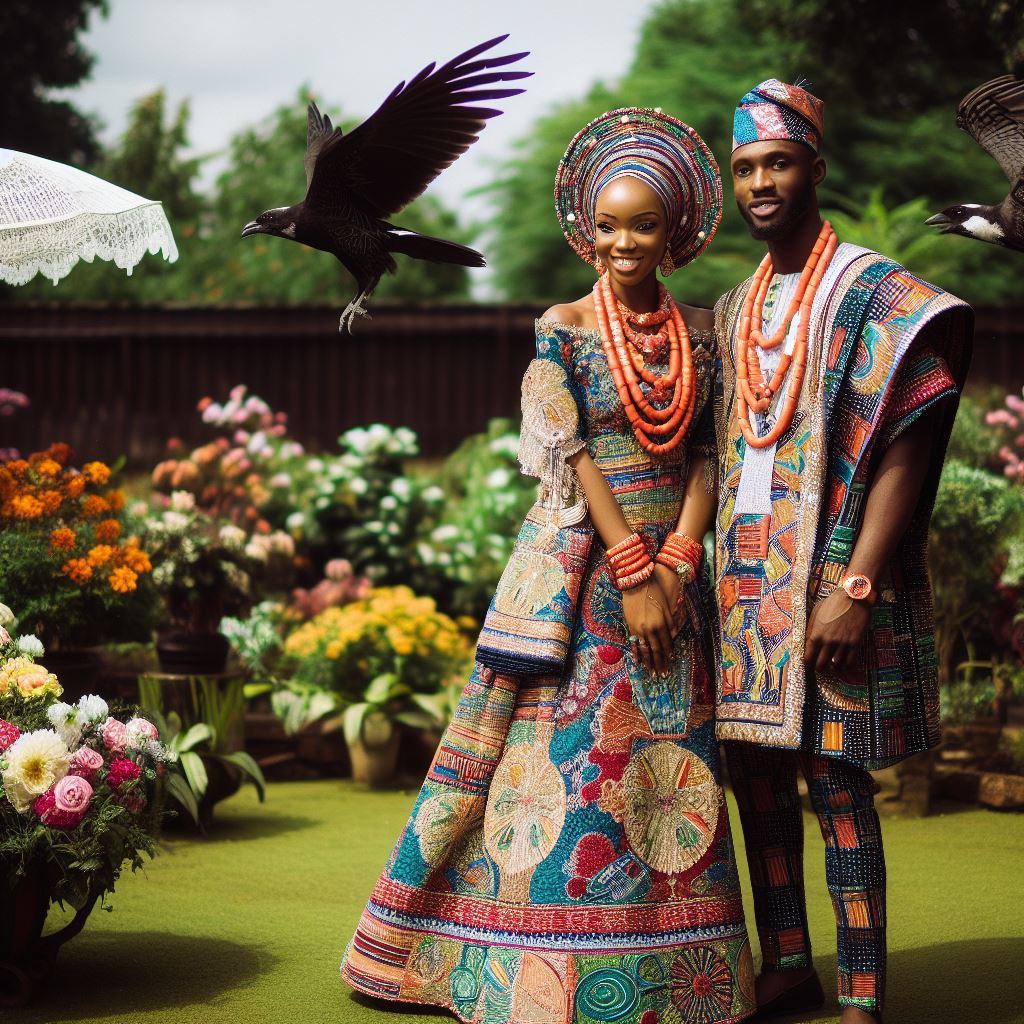
Laws and Requirements for Statutory Marriage
Legal requirements for solemnization
Nigeria enforces specific laws and requirements for the marriage form to ensure legal recognition and validity of marriages.
Age and capacity requirements
Another important aspect is the age and capacity requirements. The legal age for marriage in Nigeria is 18 years old.
A minor below this age requires proper consent to enter into a legal marriage
Consent of parties
One of the legal requirements for solemnization of a marriage in Nigeria is the consent of parties involved. Both individuals intending to marry must give their consent willingly and without any form of coercion.
Documentation and registration processes
Documentation and registration processes are also crucial for a marriage to be recognized.
- Both parties must have valid identification documents such as their birth certificates or passports. These documents will be required for the marriage registration process.
- The documentation process involves obtaining a marriage form from the marriage registry. This form must be completed by both parties and signed in the presence of a marriage officer.
The form contains personal details such as names, addresses, and occupations of the parties involved. - In addition to the marriage form, both parties must provide two passport-sized photographs, as well as evidence of their age. This could be their birth certificates or other acceptable forms of identification.
- Once all the necessary documents have been submitted, the marriage will be registered by the marriage officer. The registration process is crucial, as it legally recognizes the union and provides the couple with a marriage certificate.
- It is important to note that different states in Nigeria may have slightly different requirements when it comes to marriage registration. Therefore, it is advisable to consult the specific state’s marriage registry for accurate information.
- Nigeria allows marriages through religious or customary ceremonies. Yet, for legal recognition, registration and adherence to statutory requirements are mandatory.
In brief, Nigeria establishes laws and requirements for the marriage form to guarantee legal recognition and validity of marriages.
The consent of both parties, age and capacity requirements, and proper documentation and registration processes are all crucial steps in ensuring a legally recognized marriage.
It is important for couples to familiarize themselves with these requirements and follow the necessary procedures to avoid any legal complications in the future.
Read: Marriage is Honourable: The Socio-Economic Implications in Nigeria
Steps to Obtain a Marriage Form in Nigeria
Obtaining a marriage form in Nigeria requires following a set of steps and meeting certain requirements.
These steps ensure that the marriage is legally recognized and documented according to Nigerian law. Here is a detailed explanation of each step:
Identifying the type of marriage
Identifying the type of marriage you wish to contract is the first step. Nigeria recognizes three types of marriages: statutory marriage, customary marriage, and Islamic marriage.
Gathering required documents
Gather all the required documents needed to obtain a marriage form. Documents include valid identification, birth certificates, proof of divorce or death certificate (if applicable), passport-sized photographs, and any other documents specific to the chosen type of marriage
Visiting the marriage registry
Visit the nearest marriage registry office in your state or location. These registry offices are responsible for registering and issuing marriage forms.
You can obtain the form either from a local government marriage registry or a licensed place of worship.
Filling out the form and paying fees
Complete the marriage form accurately, providing all necessary information. The form will require personal details, contact information, details of the intended spouse, and declaration of consent from both parties.
Pay the required fees associated with obtaining a marriage form. The fees vary depending on the type of marriage and the location of the registry office. It is important to inquire about the specific fees beforehand.
Submission and verification processes
- Submit the completed marriage form along with the necessary supporting documents. The documents will be reviewed by the registry office to ensure compliance with the legal requirements.
- Undergo the verification process conducted by the marriage registry officials. This process involves confirming the authenticity of the submitted documents and verifying the identities of the individuals involved.
- Wait for the approval and issuance of the marriage form from the registry office. Once the verification process is successfully completed, the marriage form will be issued, allowing the couple to proceed with planning their wedding ceremony.
It is crucial to remember that obtaining a marriage form is only the first step towards legally contracting a marriage in Nigeria.
After obtaining the form, the couple must meet extra legal requirements, such as giving notice of marriage and having the ceremony witnessed by two adult witnesses.
These steps secure the marriage’s recognition in Nigeria’s legal system, forming a strong foundation for a lasting union.
Discover More: Nurturing Love & Understanding in the Nigerian Marriage
Consequences of Non-Compliance with Marriage Laws
Non-compliance with marriage laws in Nigeria can have significant consequences for couples. These consequences include:
1. Lack of legal recognition
Failing to adhere to marriage form laws in Nigeria can lead to their union not being legally recognized
This means that their marriage will not have any legal standing or protection. It can have far-reaching consequences in terms of their rights and privileges as a married couple.
2. Challenges in inheritance and property rights
- One of the significant consequences of non-compliance with marriage laws is the potential impact on inheritance and property rights.
- Without a legally recognized marriage, it becomes complicated for couples to assert their rights to jointly owned property or inherit assets from their spouse.
- This can lead to disputes and legal battles concerning ownership and division of property.
3. Difficulties during divorce or separation
- In the event of divorce or separation, non-compliance with marriage laws can further complicate an already challenging process.
- Without a legally recognized marriage, couples may not have access to legal remedies, such as alimony or spousal support.
- Dividing assets and determining child custody can become more difficult without the protection of marriage laws.
It is crucial for couples in Nigeria to understand and comply with the marriage laws to avoid these potential consequences.
Couples can secure legal recognition and protection for their marriage by following proper procedures and meeting requirements.
Additionally, seeking legal advice and guidance can help couples navigate through the complexities of marriage laws in Nigeria and ensure compliance.
Consulting with a family lawyer can provide couples with the necessary information and assistance to fulfill the legal requirements and protect their rights.
In fact, non-compliance with marriage laws in Nigeria can lead to serious consequences for couples.
Lack of legal recognition, challenges in inheritance and property rights, and difficulties during divorce or separation are among the potential outcomes.
Couples must strive for compliance, follow proper procedures, and seek legal guidance to ensure the legal recognition and protection of their marriage.
Common Misconceptions and Myths Surrounding the Marriage Form
Clarification on misconceptions
Misconceptions and myths about the marriage form in Nigeria are abundant. Let’s clarify some of these misconceptions and debunk common myths surrounding this important legal document.
- The marriage form is not necessary for a legal marriage in Nigeria.
Clarification: The marriage form is a crucial legal requirement for all marriages in Nigeria. It is issued by the local government council and must be filled and signed by both parties. - Once the marriage form is submitted, the marriage is automatically legal.
Clarification: Submitting the marriage form is just the beginning of the legal process. The local government council must review, approve, and register the form to establish the marriage’s legal validity. - The marriage form is only for Nigerian citizens; foreigners are exempt.
Clarification: Foreigners intending to marry in Nigeria must complete the marriage form and may need additional documents, like a valid passport and embassy clearance letter. - Once married, there is no need to update or renew the marriage form.
Clarification: The marriage form should be updated if there are any changes in marital status, such as divorce, separation, or remarriage. - A religious marriage ceremony is enough; no need for a civil or traditional marriage.
Clarification: While religious ceremonies hold cultural and spiritual significance, a civil or traditional marriage must follow to ensure legal recognition and protection of the couple’s rights and obligations. - A marriage without a marriage form is considered invalid, and there are no consequences.
Clarification: Marrying without completing the marriage form is illegal and may lead to the nullification of the marriage or legal consequences.
Debunking common myths
- Myth: Only traditional marriages need a marriage form; civil and religious marriages are exempt.
- Debunking: Regardless of the type of marriage, be it traditional, civil, or religious, all require a marriage form to be legally recognized in Nigeria.
- Myth: It is okay to forge or alter information on the marriage form.
- Debunking: Providing false information or tampering with the marriage form is a criminal offense and can lead to legal consequences.
- Myth: The marriage form is only for heterosexual couples; LGBTQ+ marriages are unsupported.
- Debunking: The marriage form does not discriminate based on sexual orientation. It is applicable to all couples, regardless of their gender identity or sexual orientation.
- Myth: The marriage form only records the union of two individuals and does not affect their rights.
- Debunking: The marriage form is not just a record but an essential document that establishes legal rights and responsibilities for both parties, including inheritance, custody, and property rights.
- Myth: The marriage form is only required for first-time marriages.
- Debunking: The marriage form is necessary for all types of marriages, whether it is the first marriage or subsequent ones, including remarriages or polygamous marriages.
- Myth: It is unnecessary to keep a copy of the marriage form after the marriage.
- Debunking: Keeping a copy of the marriage form throughout the marriage is crucial for various purposes, including obtaining legal documents, applying for visas, and resolving disputes.
Basically, understanding the common misconceptions and debunking prevalent myths surrounding the marriage form in Nigeria is crucial for ensuring a legally recognized and protected marriage.
Completing and updating the marriage form accurately is vital to protect the couple’s rights and obligations.
Conclusion
Importance of understanding and complying with marriage laws and requirements
We cannot overstate the importance of comprehending and adhering to marriage laws and requirements
Encouragement to seek legal advice for specific circumstances
It is crucial for individuals to seek legal advice regarding their specific circumstances.
Final thoughts on the significance of the marriage form in Nigeria.
Overall, the marriage form holds immense significance in Nigeria, both legally and culturally.

